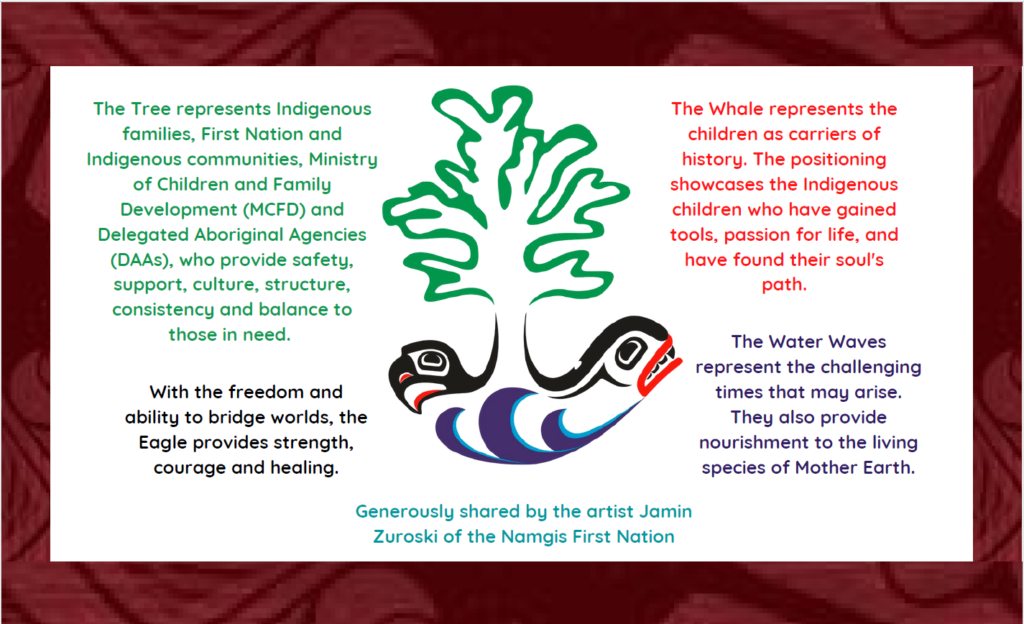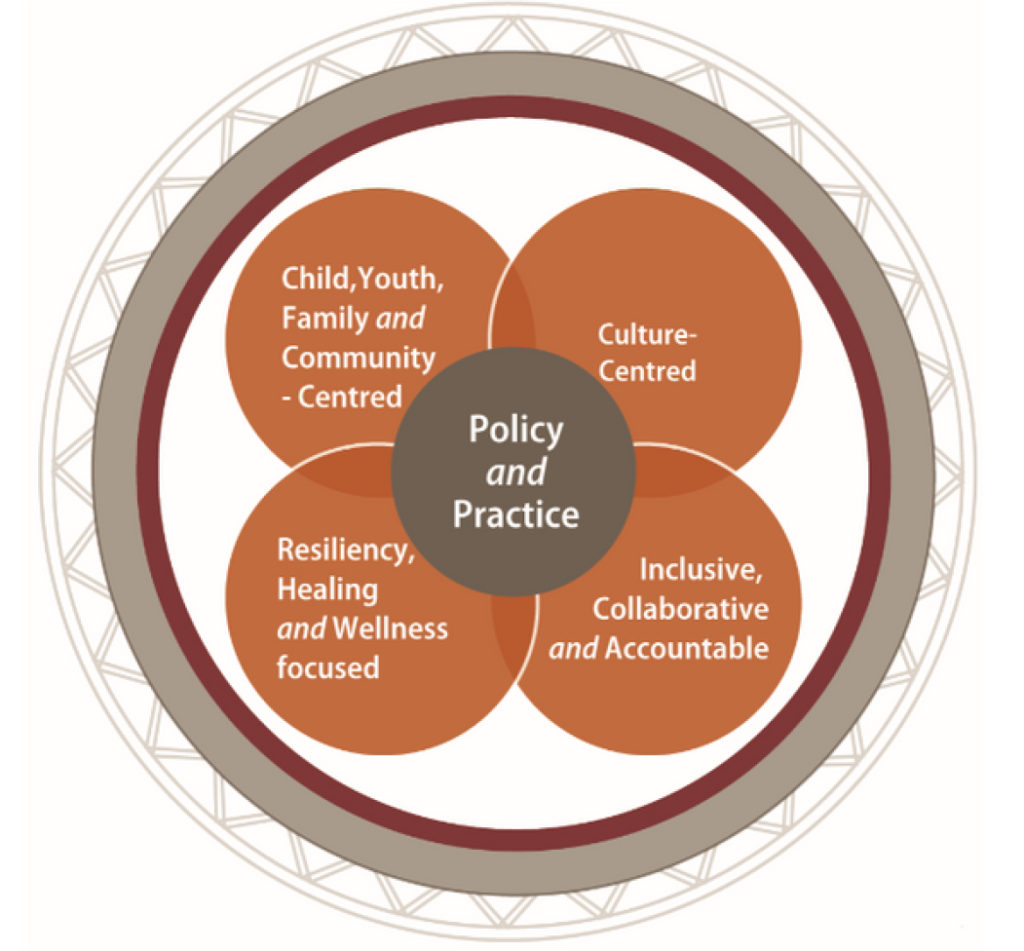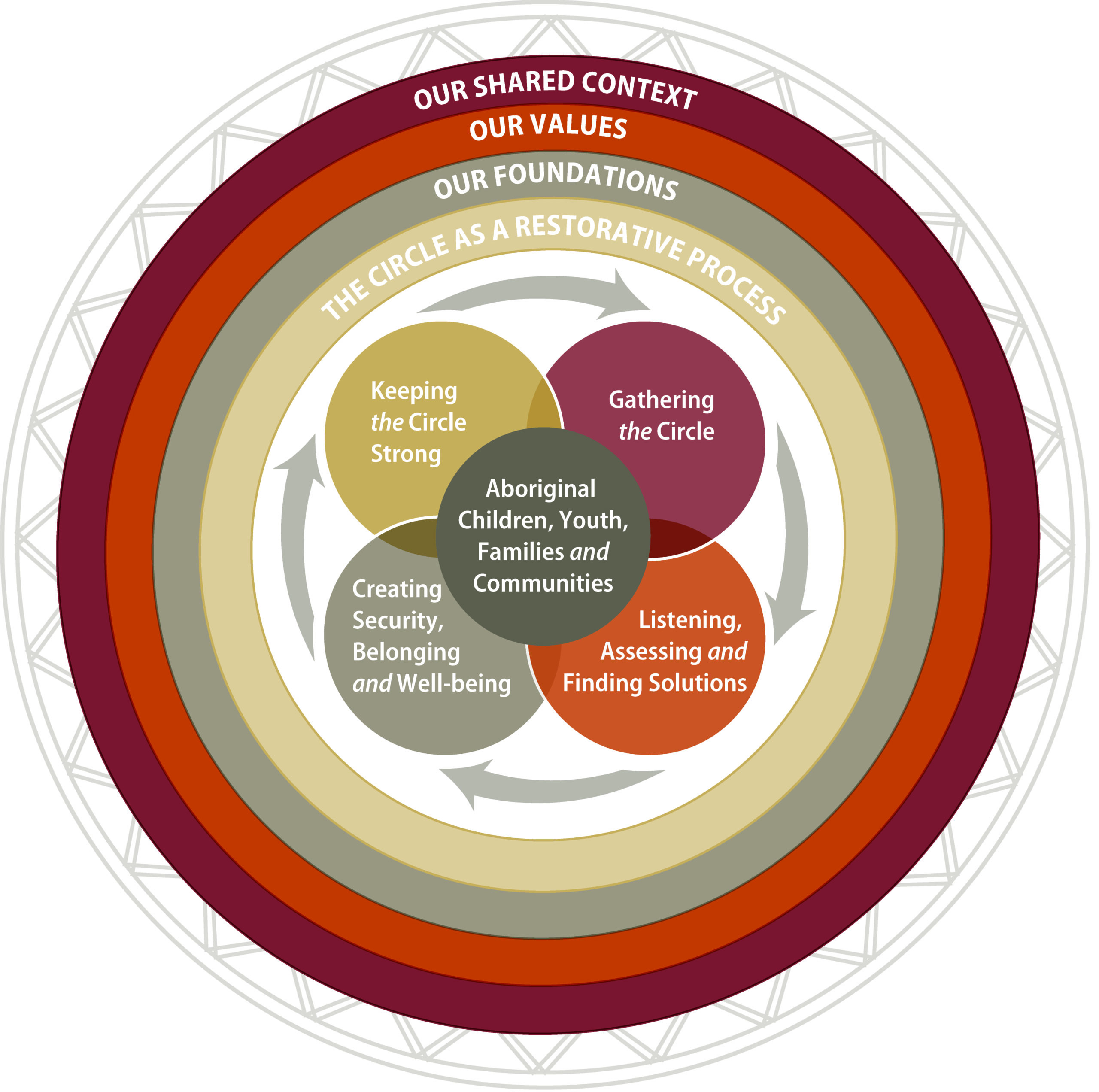Reconciliation
Reconciliation Statement
arc programs upholds a
commitment to Truth and Reconciliation. We acknowledge that colonialism is
responsible for Indigenous Peoples being subjected to historical and ongoing
Indigenous specific racism, oppression and exclusion, including policies of forced
assimilation and cultural genocide that still exists today. We are dedicated to
supporting Indigenous children, youth, and families in our communities. We
strive to create equitable spaces for Indigenous staff, partners, and community
members, and stand alongside them to demand an end to the systemic inequities
faced by Indigenous Peoples, and to emphasize the inherent strengths, knowledge
and wisdom that resides in their communities. We commit to Transformative
Reconciliation work through our actions and engagement.
The Aboriginal Policy and Practice Framework

The Aboriginal Policy and Practice Framework’s (APPF) values of Respect, Inclusion, Truth Telling, Wisdom, and Belonging, guide how we engage with individuals, families/caregivers, communities, cultures, and service providers, and are fundamental to all aspects of the planning and provision of our services. framework’s model for restorative policy and practice is child, youth, family, and community and culture-centred; inclusive, collaborative, and accountable; and focused on resilience, wellness, and healing. In this framework, the Circle process is represented by a series of interconnected circles, centered on Indigenous children, youth, and families.

Image rights granted to arc programs by the Ministry of Children and Family Development under the Aboriginal Policy and Practice Framework, British Columbia.
APPF Reflection Statement*:
Restorative approaches to practice require:
- professional and personal reflection, and a practitioner’s commitment to exploring and building Cultural Agility;
- continued involvement of children, youth, family, and community in planning;
- a practitioner to engage and explore the cultural diversity of individual Indigenous communities.
*Source: The Aboriginal Policy and Practice Framework (APPF), which applies to all policy and practice involving Indigenous children, youth, and families in British Columbia, living on reserve or in urban communities, who receive services from an Indigenous Child and Family Service Agency or Ministry of Children and Family Development.

Image rights granted to arc programs by the Ministry of Children and Family Development under the Aboriginal Policy and Practice Framework, British Columbia.
Actions and Engagement
Central to the success of our work in community, is a fundamental belief that our staff be aware that historical and ongoing colonialism, Indigenous specific racism, oppression and exclusion is responsible for intergeneration trauma, and the harm this continues to have on Indigenous children, youth, and families. Collectively we want to be better accomplices with Indigenous Peoples, and continue to collaboratively work towards equitable, accessible, and culturally relevant and responsive services for Indigenous children, youth, and families.
We all need to learn and understand our shared history in a way that moves us towards a stronger and healthier future, with relationships rooted in mutual understanding and respect. As we seek meaningful engagement and sustained relationships with Indigenous communities and organizations – based on equality, good faith, and mutual respect (TRC Call to Action 66) – we are guided by the United Nations Declaration on the Rights of Indigenous Peoples and the BC Declaration on the Rights of Indigenous Peoples Act, which establishes the individual and collective rights of Indigenous Peoples and protects them from discriminatory policies and practices.
Take Action and Steps Towards Reconciliation
Collectively, our individual actions can create tremendous impact. Like many, you may be unsure where to start. Perhaps you have younger children wanting to learn more, or have been interested in the history of residential schools in Canada? Some suggested first steps are below, on your journey to towards Truth and Reconciliation:
Kid-Friendly Learning
The First Nations Child & Family Caring Society of Canada has created this kid-friendly version of the Calls to Action. A great way to learn alongside younger members of your family.
Residential Schools in Canada
Learn about the dark history behind the residential school system and how Canada’s treatment of Indigenous children and families throughout our past, continue to be felt in the inequities faced by many Indigenous peoples today: Reconciling History | First Nations Child & Family Caring Society
The Spirit Bear Plan to Remedy Inequities
Cindy Blackstock, Canadian Gitxsan activist for child welfare and executive director of the First Nations Child & Family Caring Society of Canada, reminds us that the time to act is now. The issues facing our youth require resolution within a timeframe that “respects that children only have one childhood”. The First Nations Child and Family Caring Society of Canada (NCS) has a plan to remedy the inequalities of today: The Spirit Bear Plan
Orange Shirt Day Letter
The Caring Society encourages us to write to the Government of Canada urging them to fully implement the Spirit Bear Plan and respond to all 94 Calls to Action. Please use this template to hold them accountable and call them to action: Orange Shirt Day Letter
